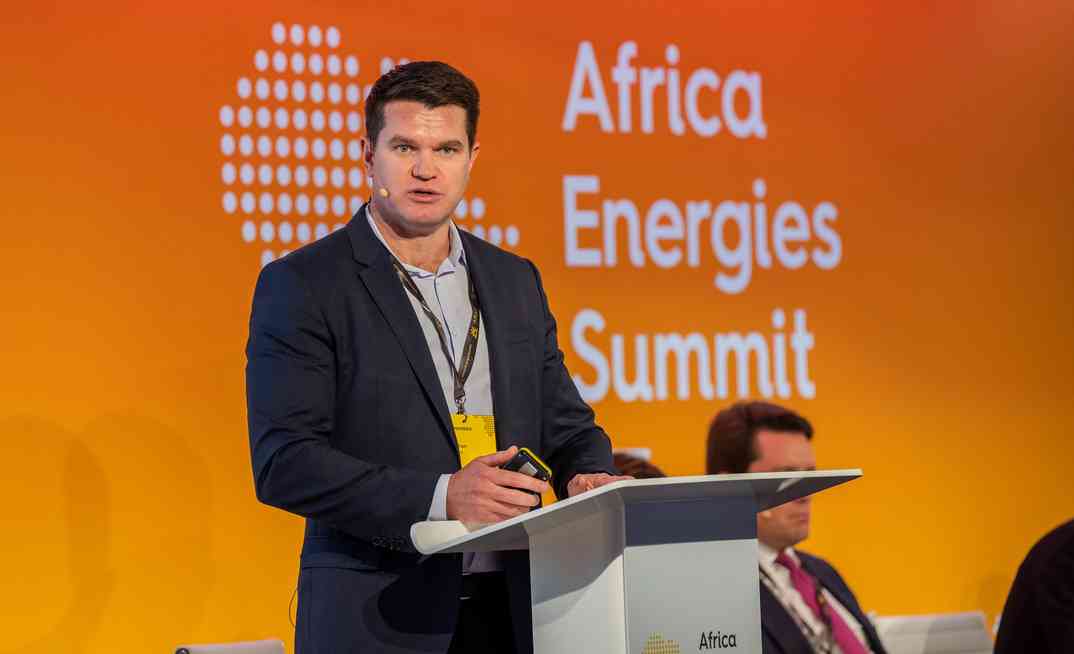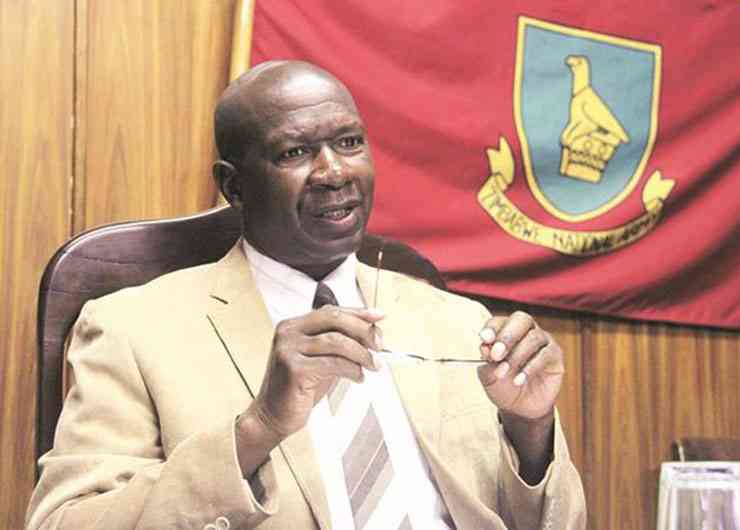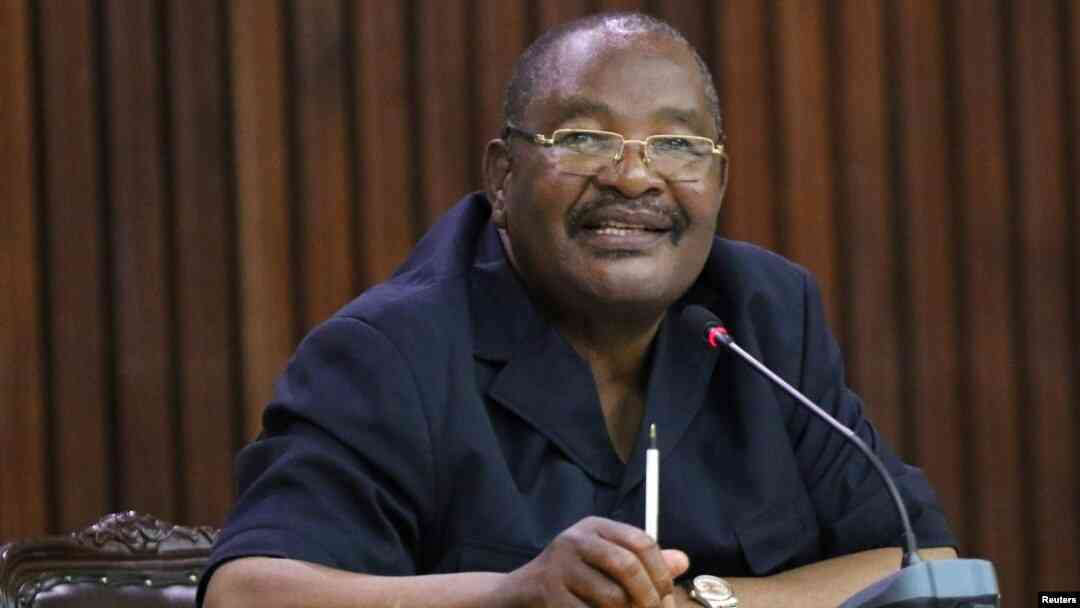
AUSTRALIAN energy firm, Invictus Energy Limited, recently secured a landmark US$500 million funding commitment from Qatari investment group Al Mansour Holdings (AMH). Afterwards, Invictus market capitalisation shot up by US$174,2 million, leading to a total listed valuation of US$229,6 million as of last week. This growth was also supported by the Zimbabwe government granting the firm National Project Status (NPS). With all these significant changes, one wonders where the company goes from here. In this interview, our group business editor Tatira Zwinoira (TZ) sat with Invictus managing director Scott Macmillan (SM) to discuss just that.
TZ: How does the US$500 million conditional facility from Al Mansour Holdings compare with your projected total funding needs?
SM: Development of Cabora Bassa will require significant capital over multiple phases, and this US$500 million provides cornerstone funding for our forward work programme to bring the project into the first phase of commercial production. Release of funding is structured around reaching key project milestones, including future exploration and appraisal results, proving up the reserves base, and securing off-take agreements. The funding will be released in stages as we progress through these milestones towards development.
TZ: From what you found, is there more oil than gas, and if so, how many barrels are we looking at in terms of annual production?
SM: The resources are currently a mix of maturities, including contingent (discovered resources) and prospective resources (undiscovered resources which need to be proven through drilling). The resource estimates for Cabora Bassa will be refined as we gather required data from future drilling, testing, and seismic campaigns to delineate resources and then converted to the reserves classification (commercial resources) once commercial sales agreements, licensing, and a development plan are approved.
The Mukuyu Gas Field contingent resource estimates will be able to be updated following 3D seismic, appraisal drilling, and well-testing given the large aerial extent of Mukuyu (>200km2) to determine the ultimate resource volume. The Eastern Margin gas prospects in the Cabora Bassa Basin (eight high potential targets) are estimated to hold prospective resources of approximately 2,9 trillion cubic feet (Tcf) of gas and 184 million barrels of condensate (gross mean unrisked), which includes the Musuma prospect soon to be targeted by the Musuma-1 well, estimated to contain 1,2 Tcf of gas and 73 million barrels condensate (gross mean unrisked). The Basin Margin play (southern part of the licence area) contains conventional oil targets with an estimated prospective resource of 1,2 billion barrels of oil (gross mean unrisked) across five high potential prospects. We aim to test this play in an upcoming exploration drilling campaign to prove it up.
TZ: The deal gives AMH a 19,9% stake and significantly boosts Invictus’ market cap. How do you address shareholder concerns about dilution, and what assurances can you give that the value created by this partnership will outweigh the equity issued?
SM: The AMH partnership is designed to deliver long term shareholder value to those invested in Invictus. Both the immediate AU$37,8 million plus a substantial US$500 million conditional capital provides the pathway to Cabora Bassa’s commercialisation. Beyond capital, the partnership brings a strategic investor with technical expertise, financial strength, and geopolitical influence to support project development, bolster confidence in the project, and attract additional offtake, financing, and strategic partners. Invictus remains an independent company, with our flagship Cabora Bassa Project our priority. Al Mansour Oil & Gas (AMOG) is a separate, new incorporated joint venture company in which Invictus has a carried 10% equity stake. AMOG will build its own team and project portfolio, allowing us to explore regional opportunities without diverting focus or resources from Cabora Bassa.
- No oil discovery as Invictus ceases operations on Mukuyu-1
- Invictus upbeat over Cabora Bassa investor interest
- Invictus seeks to raise US$10m
- Eureka! Zim discovers oil
Keep Reading
TZ: With National Project Status (NPS) providing fiscal and non fiscal incentives, can you quantify how much these benefits will reduce project costs and accelerate timelines for Cabora Bassa?
SM: National Project Status provides both fiscal and non-fiscal incentives that are expected to materially support development of the Cabora Bassa Project.
These benefits significantly reduce regulatory and financial hurdles, helping lower project costs and streamline approvals. By providing a faster, more certain pathway through permitting, NPS will help accelerate project timelines, enabling Invictus to move more efficiently from appraisal to development and commercialisation of the resources.
TZ: You have agreed on Petroleum Production Sharing Agreement (PPSA) terms with the government.
What are the most critical provisions in this PPSA that ensure transparency and protect investor returns while also meeting Zimbabwe’s national interests?
SM: The Republic of Zimbabwe and Invictus have agreed on Petroleum Production Sharing Agreement terms, with key provisions designed to ensure transparency and protect investor returns while aligning with Zimbabwe’s national interests.
PPSA will provide a stable, transparent, and equitable legal and fiscal framework to govern the country’s oil and gas sector and ensure fair and equitable sharing of value generated from the Cabora Bassa Project between the government, Invictus, and its partners.
TZ: With all that has happened over the past few weeks, what is Invictus’s forward plan?
SM: Invictus is focused on advancing Cabora Bassa efficiently and responsibly toward commercial production. Over the next 24 months, stakeholders can expect well testing and appraisal drilling in Mukuyu, pilot production planning for our gas-to-power pilot with Eureka Gold Mine, and completion of critical permitting and infrastructure approvals. High-impact exploration drilling is also set to occur at our next target – the Musuma-1 well – which will provide valuable information on Eastern Margin plays in the project area and refine our focus for the initial phase of the development. While precise development timelines will depend on appraisal results, this activity will lay the foundation for heading towards commercial production, demonstrating tangible progress to investors, partners, and the Zimbabwe government.
TZ: Invictus’ market capitalisation jumped by over US$174 million following the AMH partnership. How do you ensure this re-rating translates into sustained, long-term shareholder value rather than just a short-term market reaction?
SM: The strong market response to the AMH partnership announcement reflects confidence in Cabora Bassa’s long-term potential.
It is testament to the quality of the asset and the team and provides us the pathway for the company and asset to be developed with the support of a strong partner in AMH backed by His Highness Sheikh Mansour. Invictus is focused on delivering key project milestones, executing the development plan efficiently at Cabora Bassa. Through our participation in AMOG, we aim to build a diversified and material portfolio of producing and near-term development oil and gas assets in key jurisdictions in Africa, which will result in Invictus becoming a substantial independent energy company.










